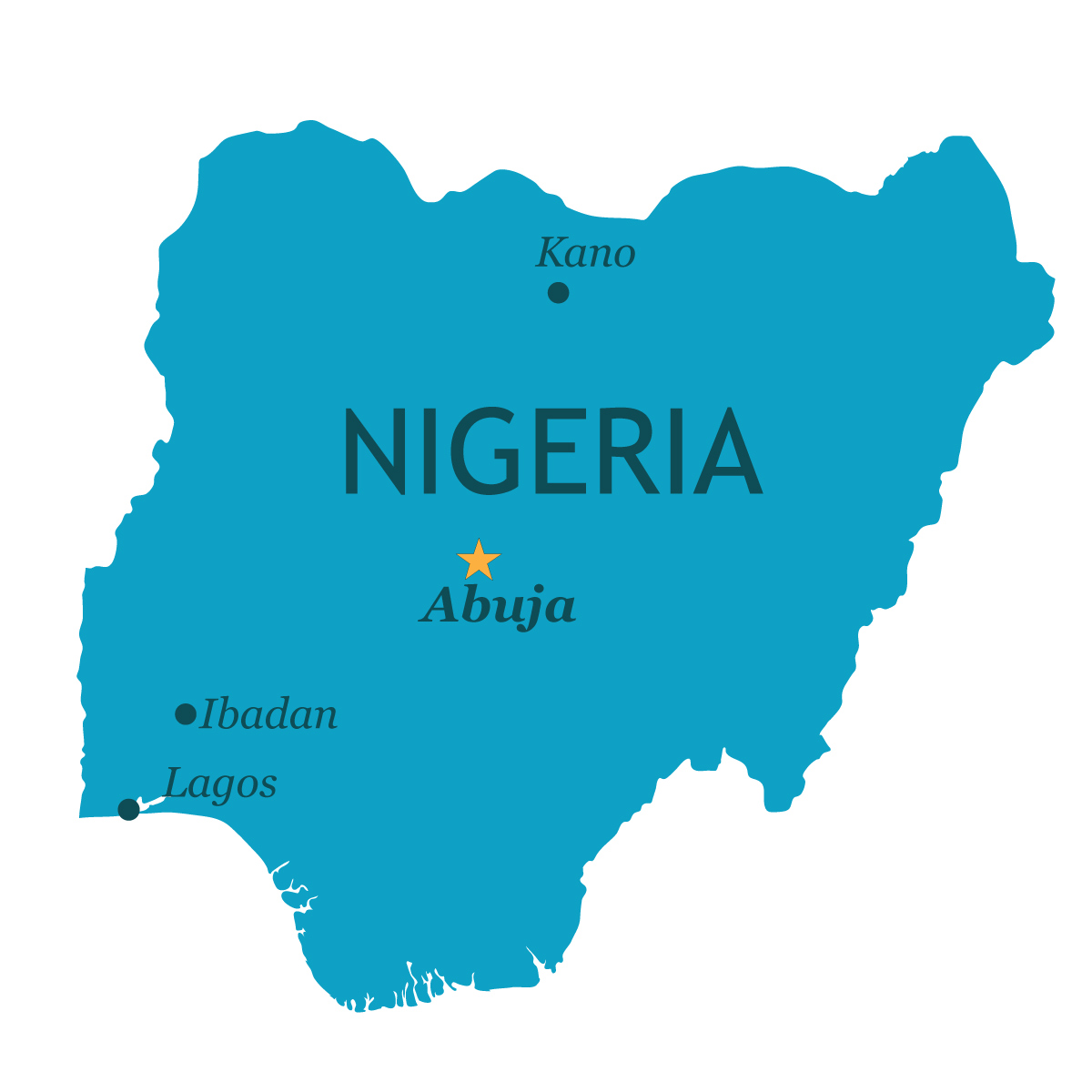
Nigeria
Nigeria is a country in West Africa. Being the most populated country in Africa, it is home to many local dialects, indigenous traditions, and regional cuisines. Gather your kids and let’s learn about Nigeria!
QUICK STATS
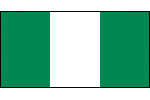
Located in West Africa, Nigeria is situated between the Sahel region to the north and the Atlantic Ocean to the south. The country borders with Niger to the north, Chad to the northeast, Cameroon to the east, the Gulf of Guinea in the Atlantic Ocean to the south, and Benin to the west.
A brief history for kids to learn about Nigeria
Nigeria has been inhabited by humans for hundreds of thousands of years. The first known developed civilization appeared in the 2nd millennium BC, known as the Nok civilization. The Nok were one of the first civilizations in Africa to smelt iron and produce life-sized terracotta figures.
With the spread of Islam in the 7th century AD, the land became known as “Bilad Al Sudan” in Arabic or “land of the blacks” in English.
In the 10th century, numerous Hausa city-states began to appear in the Sahel region of West Africa. Those Sahelian kingdoms were the first to document and record the region’s history.
During that time, the Kingdom of Nri was established, and ruled by the Igbo people. The kingdom lasted for centuries onwards, until the invasion of Britain in 1911.
The Yoruba kingdoms of Ife and Oyo rose to power in southwestern Nigeria during the 12th-14th centuries.
In the 16th century, the Portuguese reached Nigeria and began trading goods in Lagos and along the Atlantic coast. This also marked the beginning of the Atlantic slave trade. They established slave routes throughout Nigeria, linking the coastal area to the hinterland. Additionally, local neighboring kingdoms such as Edo’s Benin Empire and the Oyo Empire also participated in the slave trade.
In the north, political instabilities and constant wars between the various Hausa kingdoms led to their decline and the takeover of the Fula, a nomadic ethnic group. After the Fulani war in 1804, the Fulani-governed Sokoto Caliphate was established. The Fulani rapidly conquered several territories from neighboring Kingdoms and gained sovereignty over much of modern-day north and central Nigeria. They promoted Islamic civilization across the caliphate and many converted to Islam.
In 1861, the city of Lagos became a British crown colony, and the British spread Christianity throughout the region.
After the Royal Niger Company was chartered in 1885, the British began conquering more and more territories in the Niger region, including south Nigeria and parts of Benin. In 1903, the northern Sokoto Caliphate conceded to British rule and soon enough, The British Colony and Protectorate of Nigeria was established.
Nigeria in more recent history
Following the Second World War, a great wave of independence swept across the African continent.
Nigeria gained independence in 1960 as The Federation of Nigeria, while retaining the British monarch as nominal head of state and Queen of Nigeria.
Due to political corruption and tensions between various ethnic groups, several military coups and civil wars took place between 1966 and the democratic elections of 1999. The ethnic, cultural, and religious differences between the numerous ethnic groups of Nigeria led to pogroms, starvation, and poverty in many regions across the country.
The elections of 1999 ended 39 years of civil war, short-lived democracies, and military dictatorships. The new elected president, Olusegun Obasanjo, put the democratization of Nigeria as a matter of top priority.
Since the 2000s, Islamic terrorist organizations such as Boko Haram and the Islamic State (aka ISIS) have been illegally operating in the country, mainly in the northern areas.
Nowadays, being the largest economy in Africa, Nigeria is a regional power in Africa and an emerging power in international affairs.
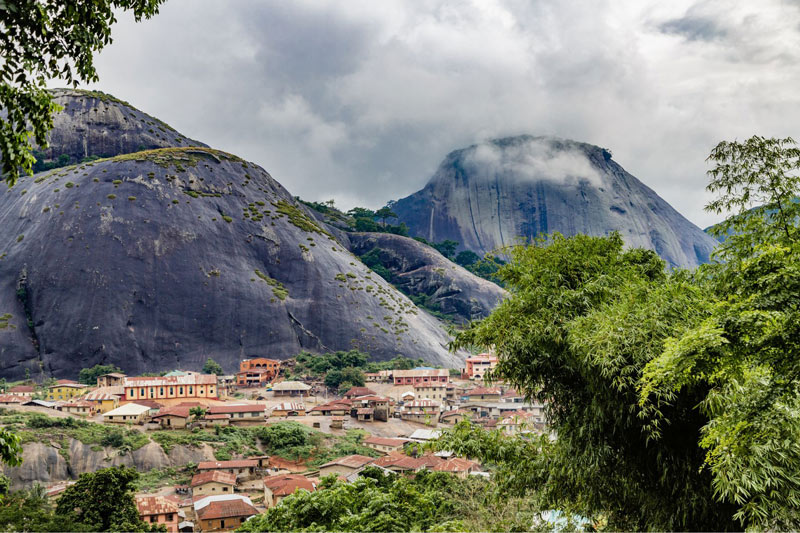
Fun facts about Nigeria for kids
- Benin City, which was the center of the ancient Benin Kingdom, is located in Nigeria. The Benin Kingdom, which flourished between the 13th and 19th centuries, is considered to have been one of the most influential indigenous kingdoms in Africa.
- After surpassing Egypt’s Cairo in 2012, Lagos is Africa’s largest city. Its population is estimated to be at least 21 million.
- The Nigerian film industry, also known as “Nollywood”, produces approximately 10,000 films every year, making it a bigger film industry than Hollywood and only second in production size to Indian Bollywood.
Nigerian food
As one of the most ethnically diverse countries in the world, Nigeria is home to various sub-cuisines and local culinary traditions. Nevertheless, many of them share common attributes and characters.
Like other West African cuisines, Nigerian cuisine is relatively spicy and relies on ingredients such as dried fish and seafood, locally sourced vegetables, and palm nut oil (sometimes substituted for groundnut oil), which dyes each dish with a golden-red color.
“Swallow food” (or simply “swallow”) is another important aspect of Nigerian cuisine. The term refers to fufu (dough-like foods made from pounded starchy vegetables and/or various grains) usually served alongside stews and soups. As the name suggests, “swallows” are generally meant to be directly swallowed rather than chewed.
Some of the most notable Nigerian dishes are:
- Nigerian jollof rice – Many consider jollof rice Nigeria’s national dish. This is a one-pot dish of rice, veggies, and sometimes meat, cooked in a broth made of tomatoes and fiery scotch bonnet peppers.
- Suya (Nigerian barbeque) – Skewers of grilled meat coated with ground chili pepper, peanut powder, and other spices.
- Iyán – A dough-like staple food of the Yoruba and Igbo people (and many other, smaller ethnic groups). They prepare it by pounding boiled yams with a mortar and pestle. And they commonly serve it alongside soups and stews.
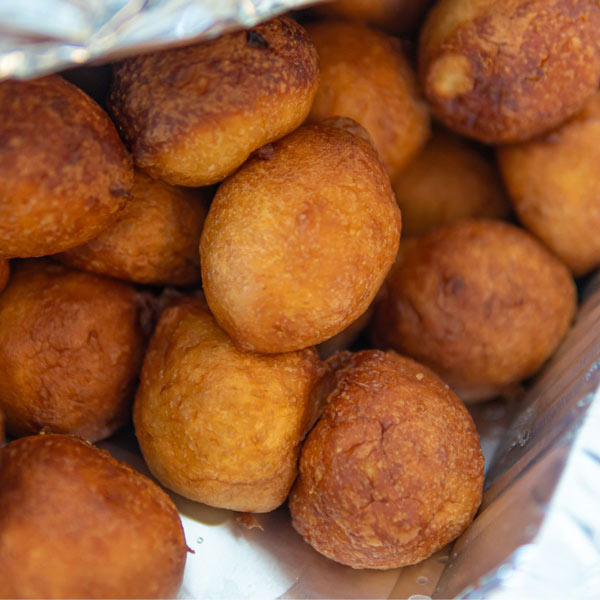
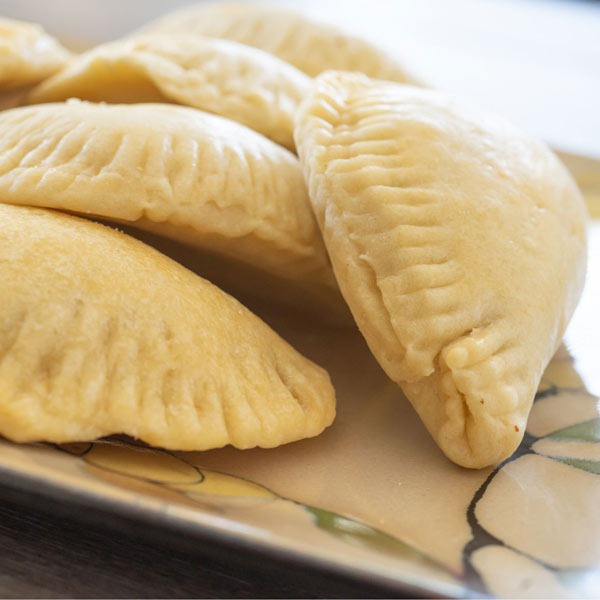
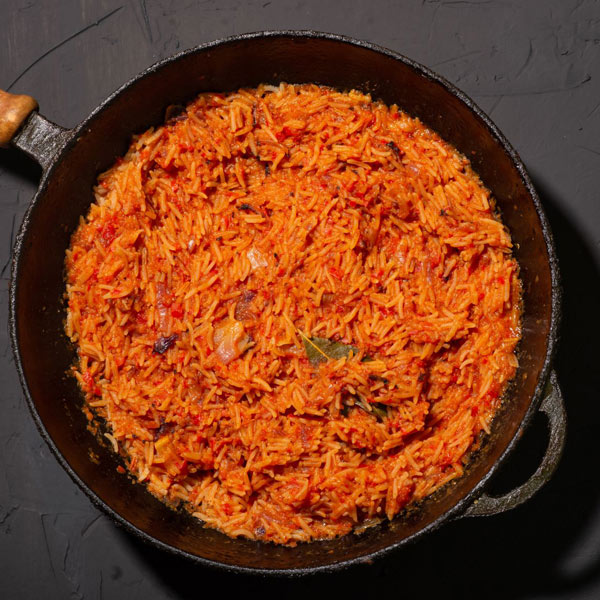
What do the Nigerians eat? Facts for kids to learn about mealtime in Nigeria.
While locals love the classic Nigerian “stew plus swallow” combo, Nigerian cuisine is incredibly diverse and the meal options are endless. Rice dishes, porridges, fried plantains, and steamed cassava are just the tip of the iceberg.
Most Nigerians eat three meals a day, and they may also enjoy fruit or street food snacks throughout the day.
Breakfast (7-8 am)
“Bread and tea” is the go-to breakfast in most Nigerian households. The word “bread” often refers a sandwich with eggs, sausage, bacon, canned fish, etc.
“Tea” refers to essentially any hot beverage.
On the weekends families may have eggs or pancakes.
Lunch (12-2 pm)
Most Nigerians consider lunch the main meal of the day. It typically consists of a stew or soup, such as efo riro or egbono, served with a swallow food. You may also see a beef stew or chicken stew.
Dinner (6-8 pm)
Often people enjoy similar dishes for lunch and dinner. As such, you may see a dish of soup and swallow for dinner, but other popular dinner dishes (sometimes also eaten for lunch) are rice and beans, porridge with meat sauce, and unripe plantains served with a stew.
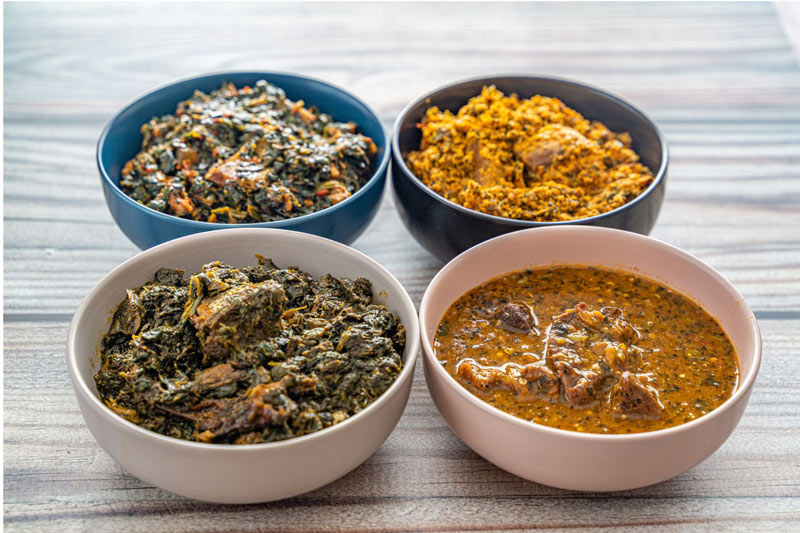
Food etiquette in Nigeria
Traditionally, men, women, and children eat meals separately. Men often serve themselves first.
Nigerians typically eat their meals using the right hand while sitting on the floor. Drinks and food are served separately.
Tea is often served in three rounds. In the first round, the tea is not sweetened at all. Sugar is gradually added in the second and third rounds. This tradition symbolizes the development of friendship.
Nigerian food by region
Nigerian gastronomy consists of hundreds of regional sub-cuisines. Each ethnic group in Nigeria proudly holds on to its generations-old culinary heritage and local specialties. Learning about the cuisines of some of these groups will help kids have a better picture of the diversity of Nigeria.
Yoruba Cuisine
The Yoruba people of western Nigeria are known for their affection for spicy food. In fact, a Yoruba proverb says, “The soul that does not eat pepper is a powerless soul.”
Yoruba dishes are known for their additional spicy kick, whether a stewed dish (like this elegusi), a plate of grilled meats, or jollof rice.
Yoruba “swallows” are typically lighter and softer than those of other ethnic groups.
Igbo Cuisine
The southern Igbo diet relies heavily on soups and stews. Igbos take their soups and stews very seriously.
While a Yoruba cook may prepare an efo riro (vegetable soup) in 30 minutes, an Igbo cook might need the whole evening to make a similar dish. This is due to the many preparations required to make Igbo-style soups and stews.
You can tell a well-made Igbo stew by the “lumps” of meat and fish in the pot. Those add a more complex textural dimension to the dish.
Fulani Cuisine
The Hausa and Fulani people of Northern Nigeria tend to eat more puddings, grain porridges, and milk-based dishes.
Originally a nomadic group, the Fula people base their diet on meat, spices, and most importantly – fermented dairy products. Yogurt, cheese, and other dairy products have a central role in Fulani cuisine.
They often use grains such as millet and sorghum to make porridge, and usually serve it with hearty meat stews.
Latchiiri is one of the signature dishes of Fulani cuisine. It consists of fermented milk yogurt served with corn couscous.
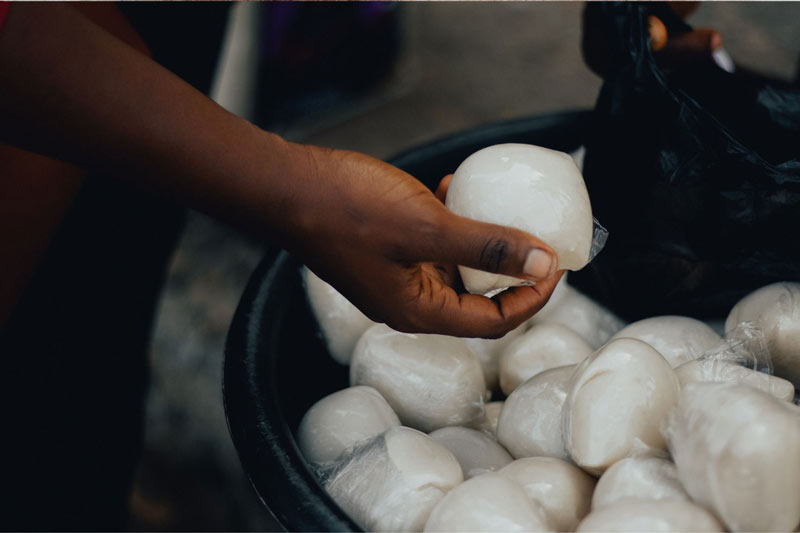
Holidays in Nigeria
Nigeria’s society is multicultural, consisting of more than 250 ethnic groups and believers of different religions.
Even though around 10 percent of Nigerians still have indigenous traditional beliefs, about half of Nigeria’s population practices Islam and celebrates Islamic holidays.
Additionally, around 40 percent of Nigerians are Christians, mainly residing in the southern regions. Many Nigerians celebrate Christian holidays such as Christmas and Easter, often with indigenous West African traditions assimilated into religious ceremonies and church services.
Osun Festival (August)
Every year in August, towards to beginning of the rainy season, the Yoruba people hold a traditional tribal festival to honor the river goddess Osun.
The festival is held in the sacred forest of Oshgobo, where priests seek protection for the villagers by offering gifts and sacrifices to the goddess.
Calabar Carnival (December)
Commenced in 2006, the Calabar Carnival is a relatively new addition to the annual festival calendar of Nigeria. It is known as the country’s “largest street party”.
The Calabar Carnival is held annually for the entire month of December in the Cross River State. The program includes various music and dance performances as well as a wide variety of cultural events, celebrating Nigerian identity and nationality.
Christmas (December 25)
Christian communities all around Nigeria celebrate the birth of Jesus every December. The celebration of Christmas in Nigeria has a distinct West African flavor.
In Igboland, for example, festivities involve masquerade dancing, known as mo.” Such traditions are believed to predate Christianity and to have been originally performed by natives to honor their ancestors.
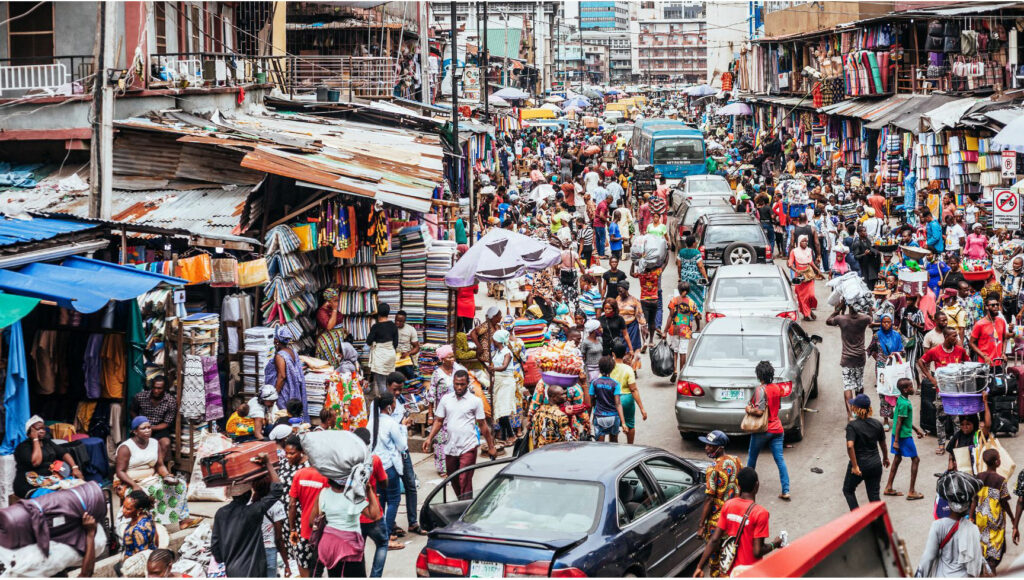
At-home ideas for kids to learn about Nigeria
As a part of your homeschool Nigeria unit study or as a supplement to your child’s Africa unit at school, try some of these ideas at home!
- Nigerian swallow foods can be made with a number of different base ingredients, like yam and cassava which you can typically find if you have an African (or Latin) grocer nearby. If that’s not an option, try making this oat fufu with your kids to serve with your next soup or stew.
- Nigeria is known for its abundance of flora and fauna, and especially for its large diversity of butterflies, with more than 1,300 species known to zoologists. Research with your kids and find three butterfly species from Nigeria that they find beautiful and inspiring. Have the children draw a scenic picture of Nigeria’s nature, while including the three butterfly species they chose.
- Nigerian music involves the combination of traditional West African musical rhythms, with American funk, jazz, and soul influences. You can listen to some rhythms from Nigeria with your kids here.

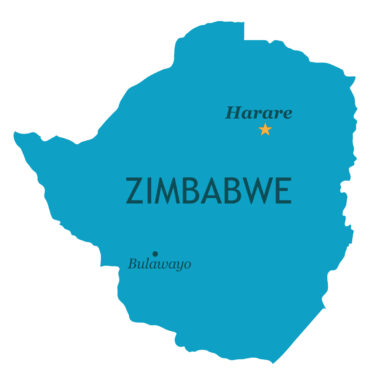
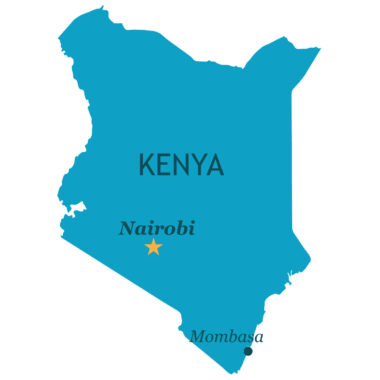
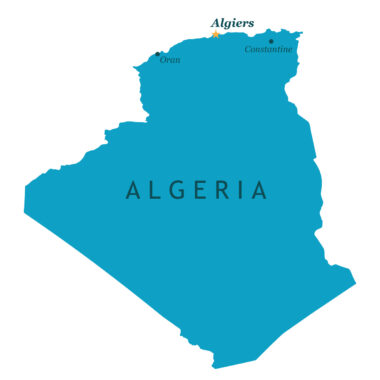


Have a Question/Comment?